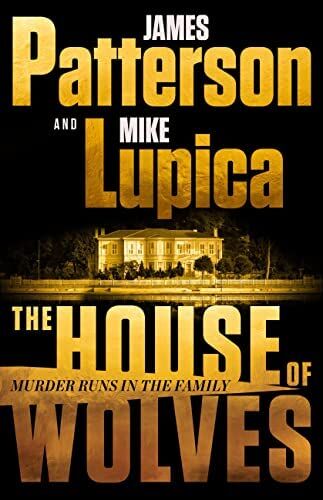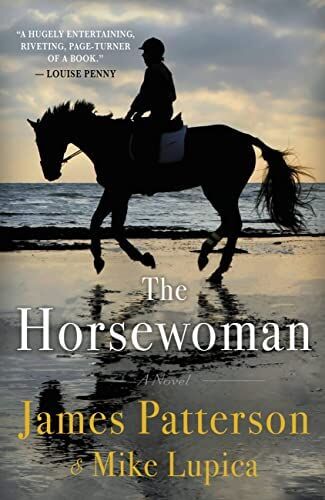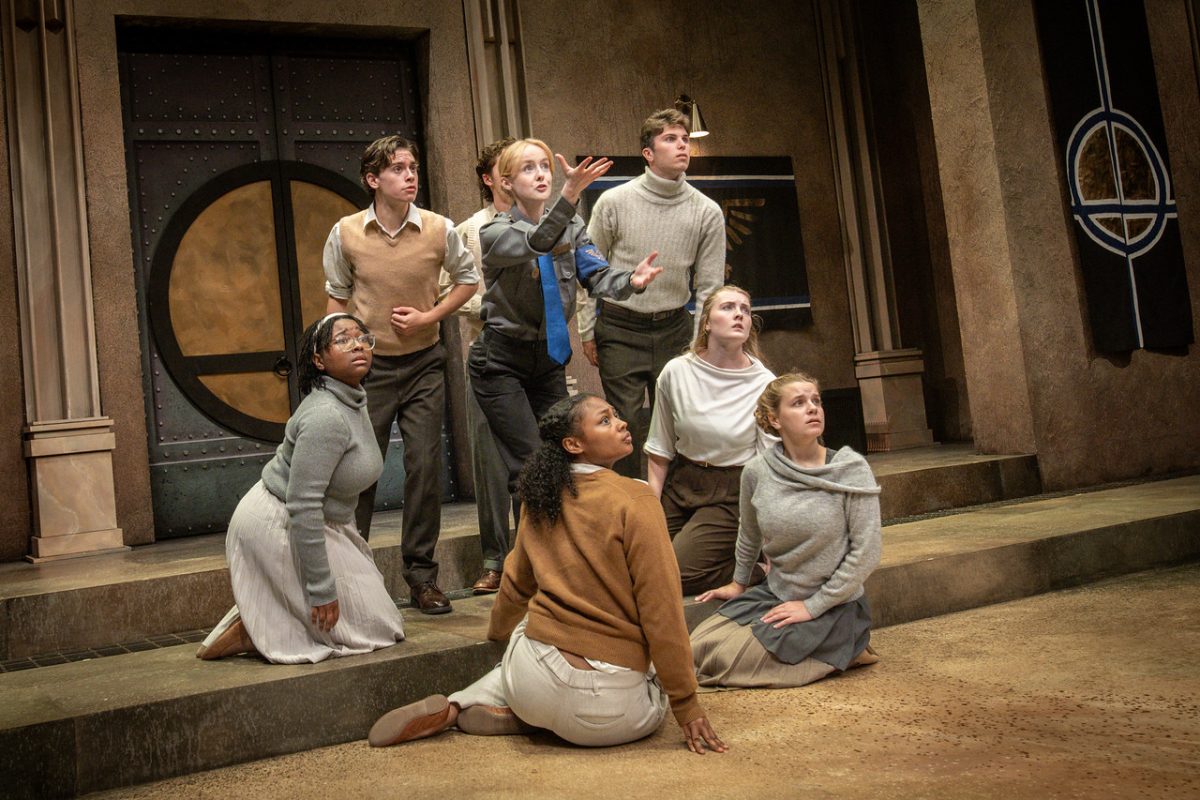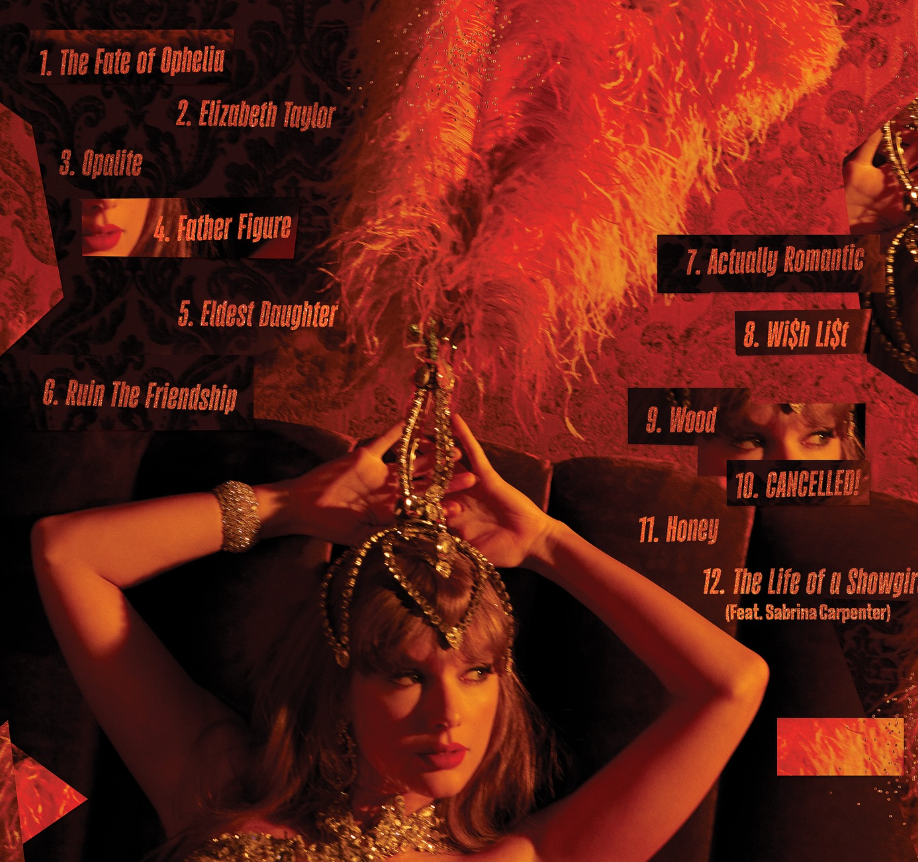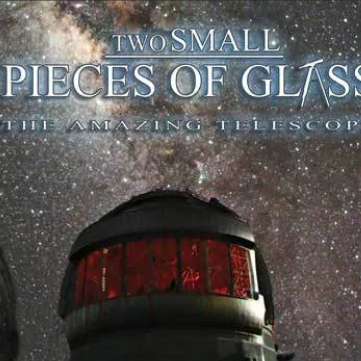Bestselling authors Mike Lupica and James Patterson held a book talk to promote their newest novel, “The House of Wolves,” at the Brooks Center for the Performing Arts last Thursday.
Given the distinctly different genres both authors are best known for — Lupica’s sports fiction and Patterson’s thriller mysteries — the pair presents an odd-couple dynamic at first glance. But with the release of their second novel, Lupica and Patterson provide readers with another fresh mystery that serves as a testament to their complementary partnership.
“Well, we’re not proud to say we met in a bar, and we just hit it off,” Lupica said of the formation of the duo.
Their first conversation started with the idea for their first project, “The Horsewoman,” which actually began as an idea for a children’s book, says Lupica, before Patterson suggested the story may be fit for something even bigger.
“We found out pretty quickly that we’re kind of running in the same way. I don’t think our styles are all that different,” Lupica said.
Patterson eagerly promoted collaboration with writers, saying, “No collaboration, no vaccine. No collaboration, no Sistine Chapel.” Lupica agreed, adding that collaboration has yielded a lot of discovery for the two of them.
“It’s really fun. One writer once said: the fun of being a writer is finding out that you know things that you didn’t know you knew,” Lupica said.
Patterson added, lightheartedly, “There are a lot of people that I did not want to collaborate with, just personality-wise. But Mike has been great whenever we got together and just shot the breeze about stuff. We do have many similarities.”
Having worked together on two published novels, with two additional completed works yet to be released, creative differences could be expected along the way. Yet, Patterson was quick to dismiss that notion. “We have never had a quarrel or an issue.” Lupica confirmed, “Not one.”
It was evident from the way they excitedly discussed this project and their hopes to continue working together that this is not only a partnership but a friendship.
Patterson offered insight into the give-and-take he finds while working with Lupica.
“Mike is a good storyteller and a good writer, I’m a really good storyteller and an okay writer,” Patterson said. Lupica was quick to disagree with Patterson’s dismissal of his own writing skills.
Still, they agreed that a make or break trait in the industry of novel writing is balancing imagination and word craftsmanship.
“There are a lot of writers that don’t have big imaginations. But, if you feed them a story, they can really lay it out. And then there are some writers that have wonderful imaginations and cannot turn it into stories,” Patterson said.
In their most recent novel, Lupica brought his extensive knowledge of the NFL and football to the character of Jenny Wolf, while Patterson delivered on the unrelenting pacing, all of which paired with their combined narrative talents to create the family thriller.
With hundreds of novels in their bodies of work, it remains a mystery how so many stories can come from two brains. During the speaking event, a member of the audience asked if either writer experiences writer’s block.
Patterson answered on the contrary, describing a condition he names “Writer’s Diarrhea,” where ideas come to him so rapidly that he becomes overwhelmed with them at times. Lupica added that at this point in his career he is always looking to the next project, and very rarely has a day off.
“When I do a book, I want to pretend there’s one person sitting across from me and I don’t want them to get up until I’ve finished the story,” Patterson said of his writing process.
While working on “The House of Wolves,” the characters took control of the story at times, said Lupica.
Patterson began, “We’re really big on outlines,” but Lupica interrupted, “I always outline. But I don’t outline like Mr. Patterson outlines. It’s so useful.”
Lupica cited a character from an upcoming project of theirs, Jane F. Smith of “Jane Effing Smith.” The pair confirmed that “Jane Effing Smith” would be a three-part series, with the possibility of additional installments.
Both “Jane Effing Smith” and “The House of Wolves” are character-driven stories. The authors agreed that a fascinating character is usually where their inspiration grows. For Jane, the pair started with a page and a half on her which they both kept “finessing”, Patterson said.
On “The House of Wolves,” Lupica said, “When he (Patterson) came up with the name Joe Wolf, it kind of set a tone for the ‘Head Wolf.’ And ‘House of Wolves’ came naturally, and it’s three sons and a daughter which I have lived with as a parent because that’s what we have.”
He went on to discuss how they draw inspiration from their loved ones, in particular, the women in their lives. “Well, we’re married to really smart women. So that’s a good place to start with smart female characters,” Lupica said.
Patterson elaborated, “I grew up in a house full of women: mother, grandmother, three sisters, two female cats. The buzzing purr is still in my head. But they were all strong.”
His series ‘Women’s Murder Club,’ (which he confirmed during the book talk is continuing) is an example of the strong female characters he enjoys exploring.
“Whatever you write, make sure it’s your best work every time out, because you don’t know who’s going to see it,” Lupica said.
Finally, the combined genius of Lupica and Patterson came with an unending stream of advice for writers and creatives. On the subject of successful collaboration, Patterson said the secret is to “listen, listen, listen, listen, listen, and don’t reject.”
“Our first rule of spitballing or kicking ideas around is you cannot edit yourself. Even if you think it’s a bad idea, it might be a good idea. So go ahead and say it anyway,” Lupica added.
“You have to be willing to be silly and be wrong and say stupid things,” Patterson said. “Sometimes, you’ll say something one day and it’s really stupid. But if you hadn’t said it, that other idea wouldn’t have happened on the third day.”
At the end of the interview, the pair offered their one piece of golden advice to writers at Clemson: “Whatever you write, make sure it’s your best work every time out, because you don’t know who’s going to see it,” Lupica said.
He referenced a story from his time writing for The Heights at Boston College, when a sports article he wrote made its way onto the desk of the sports editor at The Boston Globe, and changed his life.
“Whatever it was, that was my best work that day. So make sure every time you put your name on something, it’s the best you could make it,” Lupica said.
Mr. Patterson’s answer was, simply, passion. “Mike and I both, at this point, write seven days a week. And I always say I don’t work for a living, I play for a living.”
Lupica ended their book talk with a special address to local bookstores, and his love for journalism on all levels.
"The Horsewoman" was the first collaboration between Patterson and Lupica in 2021.



